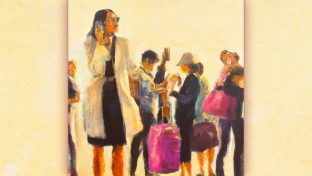Alone In A New City: Unique Ways I Coped To Feel Less Lonely
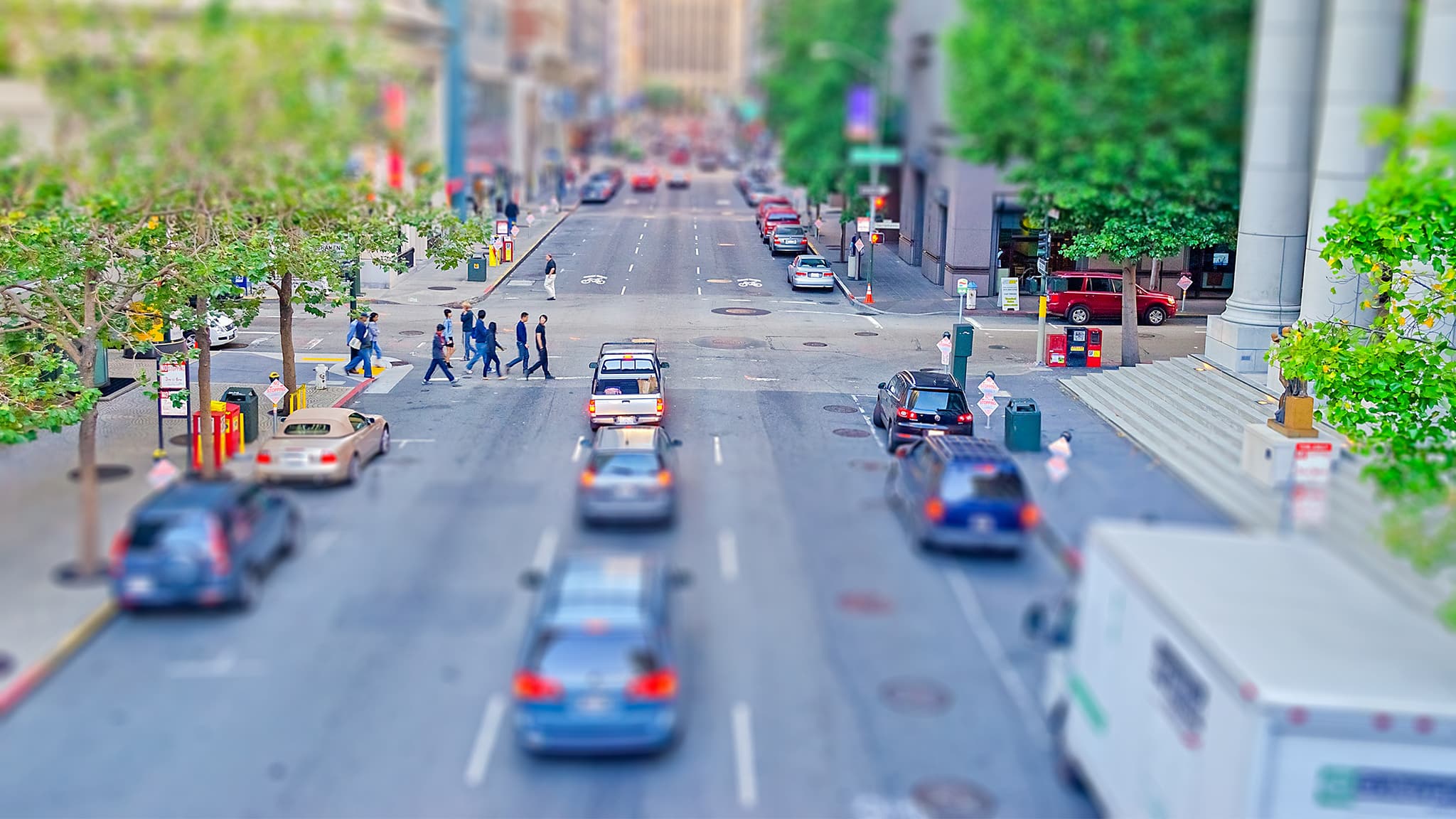
Despite being surrounded by people and the technology to link us together, loneliness has reached epidemic levels in the last decade.
- If you’re moving to a new city alone, first and foremost, remember that you are a badass and give yourself credit for boldly taking on such a major upheaval in your life!
- Loneliness rates vary by city but the loneliest city in the world is London — 55% of residents reported that it can feel like a lonely place in which to live. This was followed by New York (52%), Dubai (50%) and LA (48%).
- A 2019 study by the University of Minnesota School of Health showed that overall, people in rural areas experience less social isolation and more relationships than city folks. (Until this study, there was very limited research on the rural-urban loneliness divide.)
- Make sure you carve out time each and every week to visit parks, green spaces and places that bring you peace, joy and connect you with the outside world.
Struggling with loneliness or having a mental health crisis?
- Suicide Prevention Lifeline: 1-800-273-TALK (8255); Deaf or hard of hearing dial 711 before the number or connect via online chat
When I was living in the city, life was good.
I had a fabulous studio apartment on the Upper East Side and my social calendar was always bursting at the seams.
There were glamorous events and hot dates and through it all, I had three amazing best friends who were always there to see me through life’s ups and downs…
Wait. That wasn’t me. That was Carrie Bradshaw from “Sex and the City.”
To be honest, my life was actually a stark contrast to her’s.
I did share some key similarities with Ms. Bradshaw — I too was a single thirty-something-year-old writer (well, writer wannabe!) living alone in a downtown studio.
But my calendar was often empty and men weren’t exactly beating down my door. On top of this, I struggled for quite a while to find a solid network of friends.
And, when I stepped outside my building, instead of being caught playfully by a romantic autumn breeze a la Carrie Bradshaw, I was often smacked with the pungent smell of human degradation and lost dreams.
…Too far? Let’s just say that Carrie Bradshaw was living in a fantasy version of New York, while I was living in the real version of San Francisco.
Don’t get me wrong, I loved the city very much, but my big issue was that a lot of times I felt lonely in my urban environment and I couldn’t quite figure out why.
I was young and ambitious. I was friendly to everyone, and I always left myself open to new opportunities and adventures. Plus, I was living right smack in the middle of one of the densest, most vibrant neighborhoods in the U.S.
So at the end of the day, I couldn’t help but wonder: why was I so lonely and why was it so hard for me to make friends in the city? And did I make a mistake moving to a new city alone?
Moving anywhere — especially to a big city alone — can be an exciting and liberating experience. Cities provide great opportunities, but at the same time, a new city is never a magic pill for a better life.
In fact, despite all its modern conveniences, city living can be remarkably hard at times. And paradoxically, living in an environment that’s dense with people can actually make loneliness worse.
Tips For How To Feel Less Alone In A New City
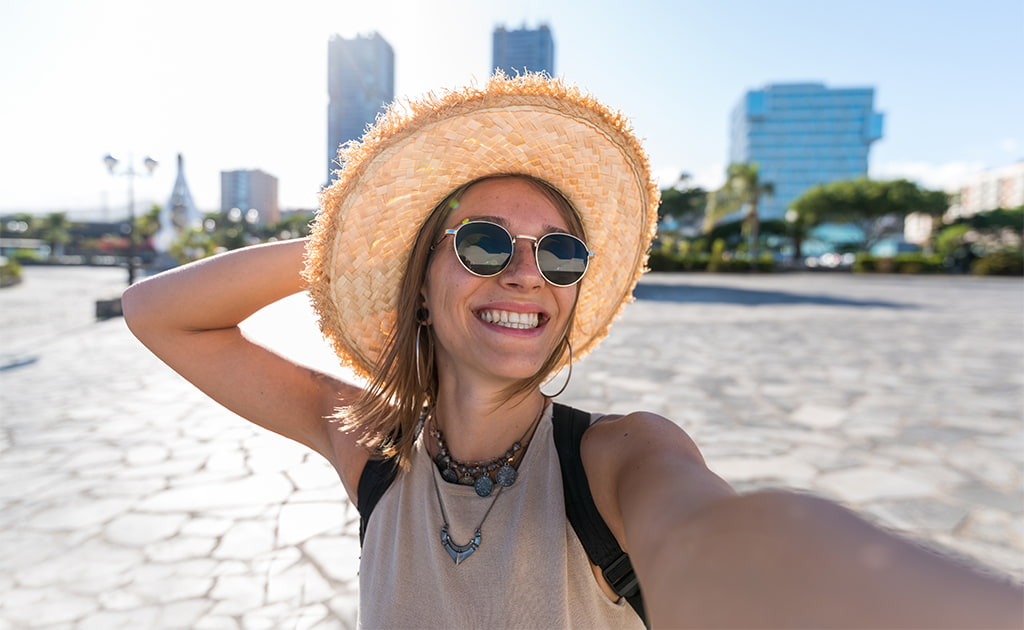
If you’ve just moved to a new city on your own, struggling with loneliness as an expat in a new country, or are just feeling lonely in the city you’ve always lived in, the good news is that there are many things you can do to start feeling more connected to your community right away.
You may not end up with a glamorous “Sex and the City” lifestyle, but you’ll definitely be less lonely if you follow these tips.
- Recognize That You Are A Badass! (And That This Is An Opportunity For Personal Development)

It should go without saying, but we can all use the reminder sometimes: You are a badass.
Especially if you’ve just moved from far away, it takes real guts to leave your support system and strike out on your own.
A lot of people never have the courage nor the opportunity to leave their hometowns and they stay in one place their entire lives.
In fact, a poll conducted by the Pew Research Center found that 37% of Americans have never lived outside their hometown while 57% have never lived outside their home state.
By leaving your old social network behind, you now have the unique opportunity to learn how to self-soothe and identify ways to occupy yourself so that living alone doesn’t automatically translate to being lonely. (No, these two things are not synonymous!)
And this all comes down to developing self-esteem. According to NYC psychologist Dr. Yoon who we spoke with earlier:
“It starts within yourself. Before you feel you have the courage to reach out, you have to build yourself up first. Build that confidence muscle in yourself so that you know you have the confidence to then go out and connect with others.”
As she told me, her clients come to her with all sorts of barriers and “what ifs” when faced with the prospect of making new friends or asking people out.
But through developing self-esteem, we can learn to temporarily suspend judgment, be cautiously optimistic, and take that leap to reach out.
For me, reaching out to others in the city started with a bit of a catch-22 situation.
On the one hand, my self-esteem was initially too low for me to step outside of my comfort zone. But on the other hand, I realized that the only way to strengthen my self-esteem was to do just that.
I eventually had to just force myself to a certain degree.
I wanted to learn graphic design so I signed up for classes in my neighborhood. This ended up being a smart move as a big component of the classes was public speaking and presenting my designs to others.
The more I did it, the bolder I became, thus building that “confidence muscle.”
- Make Efforts To Provide A Touch Of Humanity…It Doesn’t Take Much
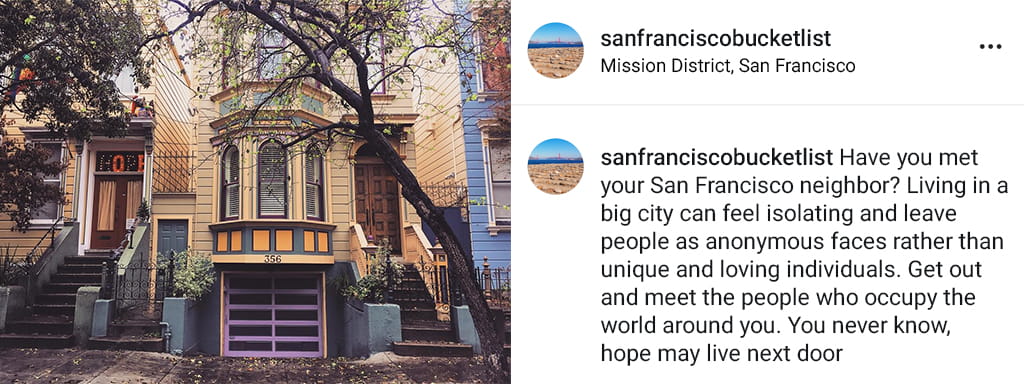
Here’s a small piece of advice that can make a big, impactful change in your day-to-day life if you’re struggling with urban loneliness, courtesy of Austinite Megan M.:
“It’s crazy that we live beside other people but often have no clue who they are. Introduce yourself and just say you’re looking to get to know your neighbors.
Passing by your neighbors and being able to recognize and greet them by name can feel so nice and provides that touch of humanity we sometimes need during a lonely day.”
Can you imagine if everyone did this?
Jeremy, a frequent mover who has lived in several cities including Los Angeles and Las Vegas, makes it a point not only to introduce himself to new neighbors, but to folks he passes throughout his day.
Yes, he’s “that guy” — the one with the easy laugh who can’t help but spark up a conversation with you as you’re waiting in line at the bank, post office, or grocery store (impervious to negative politeness!).
He offered some advice to us introverts for whom this doesn’t come naturally:
“I start conversations with everyone because you never know where you’re going to meet a new friend, find your next job, get a sweet deal, learn some valuable info, and so forth…Opening up not only makes you less lonely, but it really opens up all sorts of opportunities in life.”
When asked how to gauge whether people are interested in chatting, he had this to say:
“Just go for it. A lot of people are naturally quiet and reserved in public but as soon as you start talking and get that ball rolling, their shyness melts away. You’d be surprised. The mass majority of people really want to connect.”
…As for me, I regularly looked forward to running into my upstairs neighbor, Helen. A lovely senior citizen with a thick New York accent, she always initiated conversation at the mailboxes and in the hallway.
When she passed away, I silently vowed to become more like her. I’m sure Helen made a huge impact on so many people’s lives, and all it took was a regular hello and a friendly chat.
- Use Technology As A Jumping-Off Point to Make Real-Life Connections
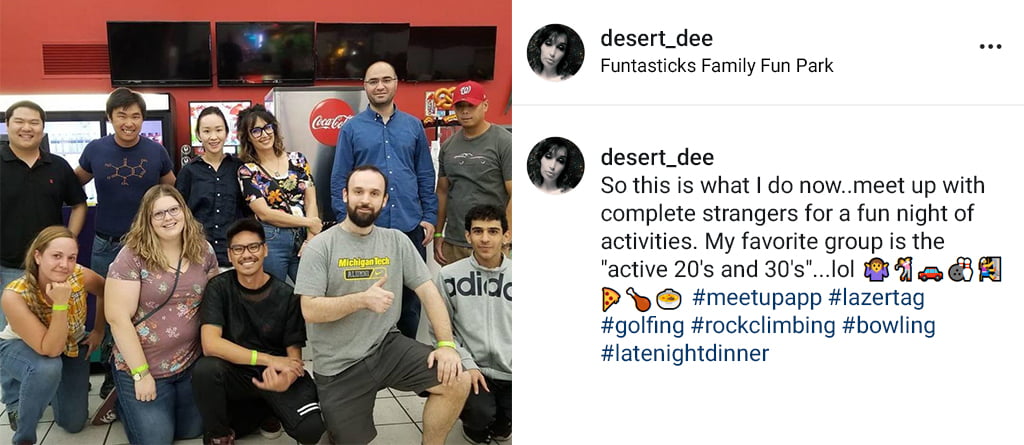
Don’t let technology become a time trap and create a feedback loop of loneliness! Trust me, I’ve been there.
You’re not going to feel good about yourself come Monday if you spend the weekend in your pajamas browsing Reddit.
The really great thing about technology when you live in a new city alone is that there are so many ways you can use it as a jumping-off point for getting out there in the “real world” and truly connecting.
Here are a few options that are worth exploring:
- Meetup.com: This site is probably your best bet for finding new friends who share your specific interests and passions. The great thing about Meetup is that you can find groups and events of a seemingly endless variety. Everything from art therapy, to city hikes, to practicing a new language, to LARPing…you name it, they’ve got a group for it!
- NextDoor: NextDoor is a hyperlocal message board that posts anything from neighborhood watch alerts, to garage sales, to block parties and even Thanksgiving dinners with open invitations. If you want to be “in the know” about your new community and get to know your neighbors before actually meeting them in person, then this app is a must.
- Facebook Events: As I discussed above, social media is supposed to bring us together, but instead it can often lead to FOMO which makes us even lonelier at the end of the day…So why not use our Facebook time in a healthier way by checking out fun local events? The trick is to start using Facebook, and other social media, as a tool for actual connection rather than just a passive time suck.
The best thing about social media is that sometimes it can alert us to opportunities to connect that are happening literally a block away — events that we would otherwise be completely oblivious to.
As for me, I got tuned into Yoga on the Labyrinth, a free weekly yoga session that takes place in a gorgeous cathedral…How cool is that?
- Don’t Forget to Utilize Parks And Green Spaces
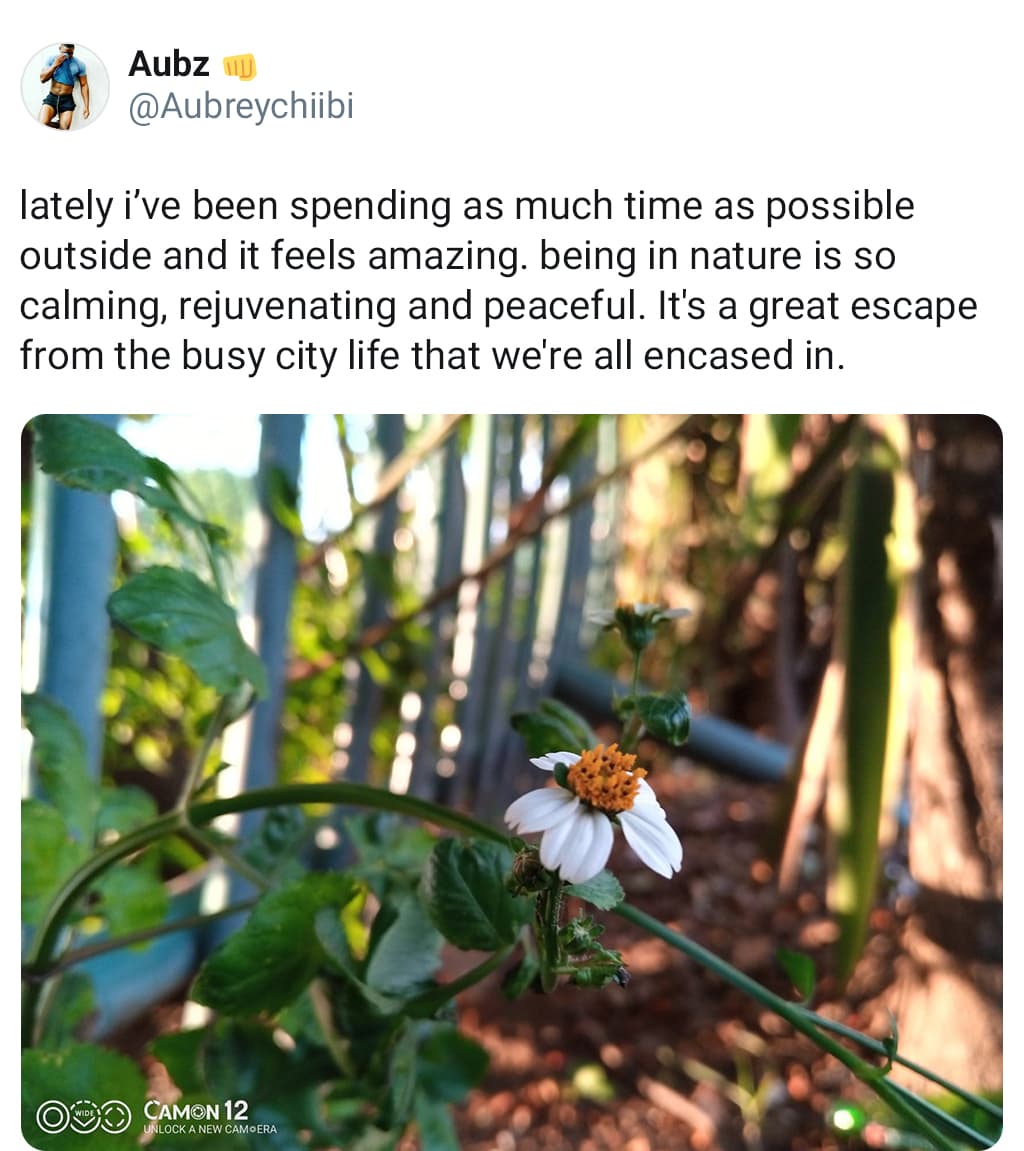
If you’re new to a city, take my advice: Find your nearest park and make yourself a fixture there.
Any city planner will tell you that parks and green spaces are there for more than just ornamentation.
They are vital to healthy cities as they help residents de-stress, socialize with each other, and hold public events.
On top of this, studies show that being surrounded by nature has a significant impact on decreasing levels of anxiety and depression for those who suffer from poor mental health or depression-related loneliness.
And city parks are particularly special places as they not only reconnect us to nature but they serve as meeting spaces that unite people of all different ages, cultures, socioeconomic statuses, and lifestyles.
When you spend time in a good park you have the opportunity to sit back, take in the unique tapestry of city life, and appreciate how so many different people are able to share space together.
Speaking from personal experience, my favorite San Francisco weekends were spent relaxing on the lawn at Yerba Buena Park. There was such a perfect balance of nature and humanity that even when I was alone, I never felt too lonely.
It was a sacred, reflective space that became an important part of my weekend ritual.
- Volunteering With Others Can Seriously Change Your Life
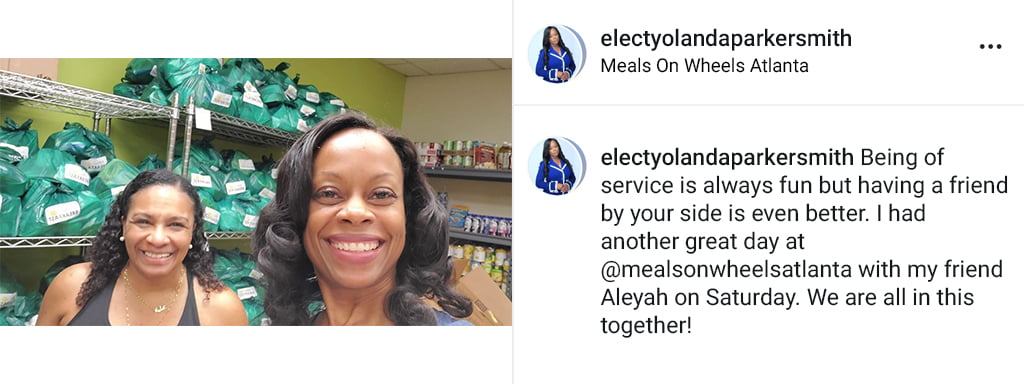
My last tip and probably the most effective way to combat loneliness is to start volunteering on a regular basis, and cities provide so many wonderful opportunities for this, both during the holiday season and year-round.
When I started volunteering, it was a serious turning point for how I felt about myself and my place within the city. Something that started as a way for me to stay away from the bars (which only made my loneliness worse), ended up becoming an activity that gave me a sense of purpose and belonging.
And the best thing about volunteering is that you are alleviating your loneliness in the process of reaching out to other people who themselves may be suffering from loneliness.
For example, elderly people in urban areas often experience social isolation and thus benefit immensely from the company of visitors. Why not volunteer with Meals on Wheels or the Little Brother Friends of the Elderly program?
Another fantastic organization that I spent many years volunteering for was CASA — Court Appointed Special Advocates.
Through CASA, I became a foster youth mentor, helped my mentee navigate the family court system, and acted as a stable role model in her life.
But mostly, we were able to get out of our respective apartments every Sunday and share all sorts of fun adventures in the city!
My finest memories of San Francisco are taking the MUNI down to the projects and busting her out so we could spend the day at Fisherman’s Wharf.
What Do The Statistics Say About Loneliness, Especially In Cities?
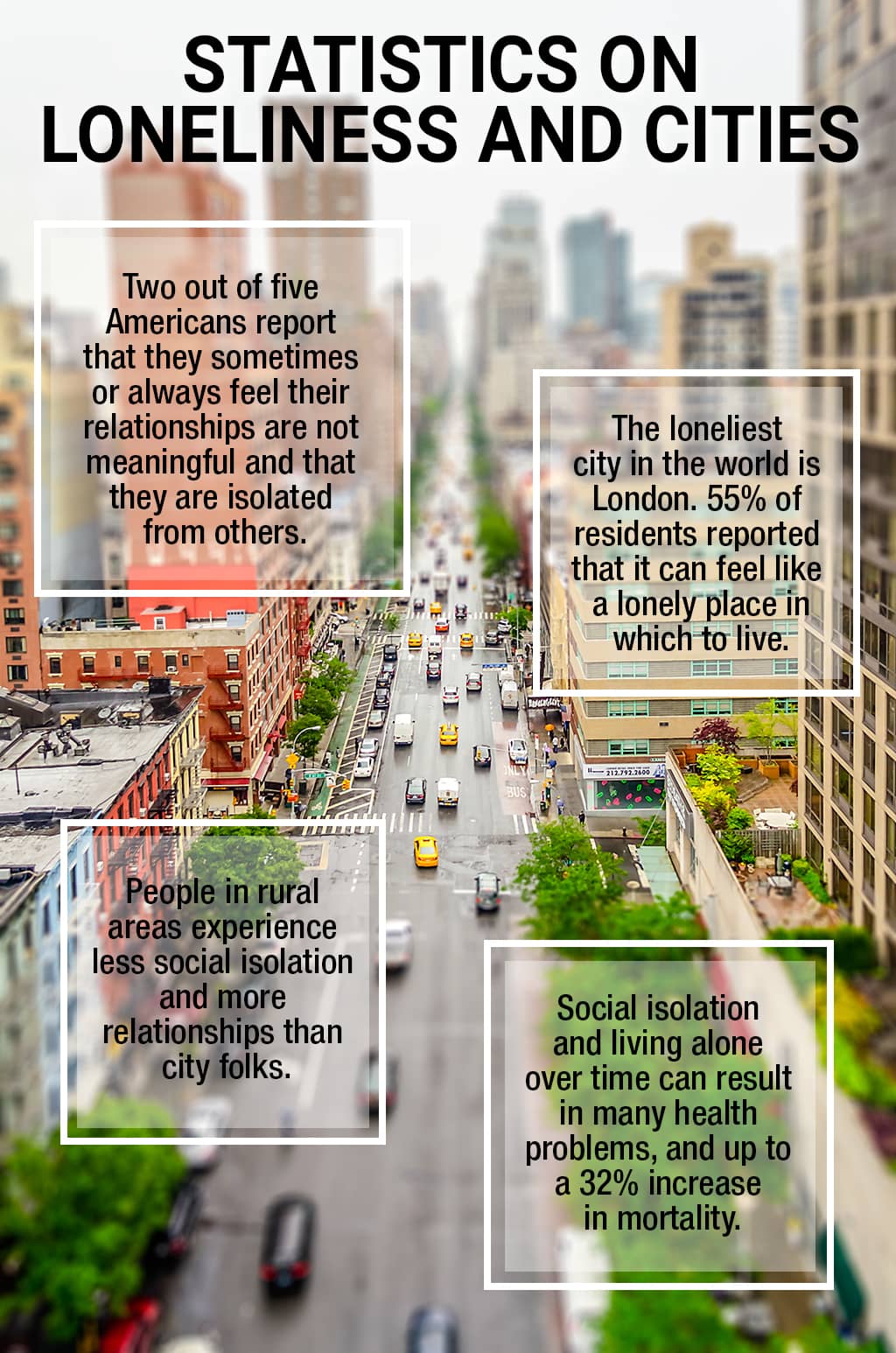
- Loneliness has reached epidemic levels in the last decade. Two out of five Americans now report that they sometimes or always feel their relationships are not meaningful and that they are isolated from others.
- Loneliness rates vary by city but the loneliest city in the world is London — 55% of residents reported that it can feel like a lonely place in which to live. This was followed by New York (52%), Dubai (50%) and LA (48%).
- A 2019 study by the University of Minnesota School of Health showed that overall, people in rural areas experience less social isolation and more relationships than city folks. (Until this study, there was very limited research on the rural-urban loneliness divide.)
- Social isolation and living alone over time can result in many health problems, and up to a 32% increase in mortality.
There’s something that I’d like to emphasize here, and something that nobody ever told me when I first moved to the city — If you’re feeling the sting of social isolation as an urbanite, you are most definitely not alone.
In fact, a 2016 TimeOut City Index Survey questioned residents from eighteen cities around the world and found that the places that topped the loneliness list were some of the most populated.
When asked whether their city can feel like a lonely place to live, 55% of respondents from London answered in the affirmative. This was followed by New York at 52%, Dubai at 50% and Los Angeles at 48%.
And not to throw London under the (double-decker) bus again, but another survey found that 75% of respondents didn’t know the names of more than three neighbors and more than half didn’t know more than two.
Furthermore, looking at only apartment-dwellers, three quarters didn’t even know the names of anyone on their street. It’s not just in our heads — we simply aren’t making the vital connections that we need to be happy.
And while it’s debatable among social scientists whether urban folks are more lonely than rural folks and suburban dwellers, city loneliness is a different and distinct type of loneliness.
While rural people might experience loneliness due to actual physical isolation, urban people might be lonely despite — and perhaps even due to — being surrounded by thousands of others on a near-constant basis.
This can add an element of shame to the loneliness, and a feeling of “How exactly did this happen?!”
I spoke with Dr. Yesel Yoon, a New York City psychologist who works with clients who are dealing with the stressors of fast-paced big city living.
“The majority of my clients are transplants [to the city], so they’re not only having to deal with general loneliness that most people have to deal with, but they’re having to adjust to a new city on top of this,” Dr. Yoon told me.
A lot of her efforts are spent trying to normalize and destigmatize the experience of being lonely for her clients.
As she told me: “To try and connect with new friends is hard as an adult. Clients will often realize, ‘Wow, if it’s not for school, I don’t know how to meet people.’ … Or they are ashamed, thinking, ‘How am I so lonely if there are so many people around?’”
Why Do Cities Make Us Feel So Isolated And Alone?
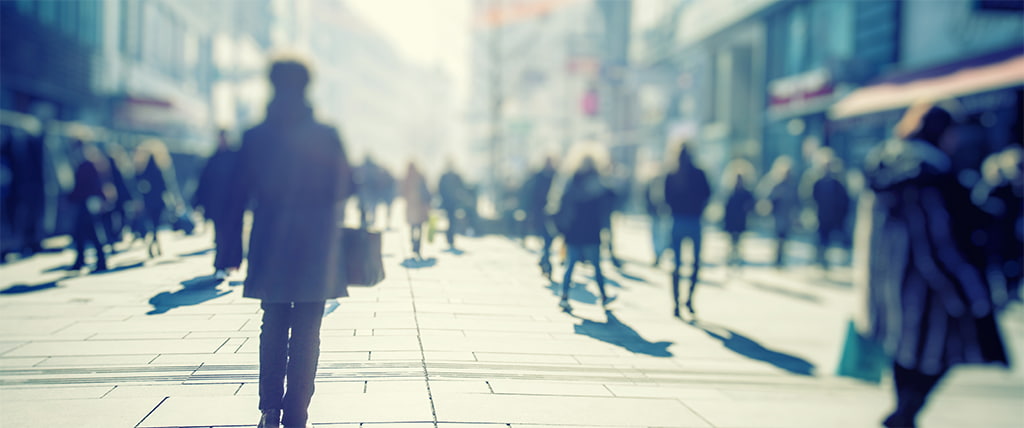
In seeking to answer this question, I found that there are several major factors that are unique to cities and that, when combined, create the perfect recipe for loneliness.
- A Highly Transient Population Makes It Challenging To Keep Friendships
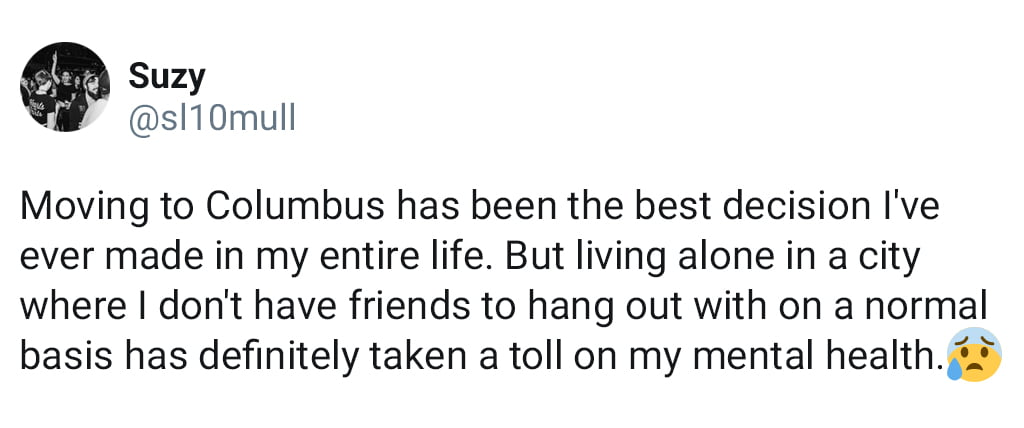
When I read a study about Londoners who didn’t know the names of their neighbors, my initial thought was: Maybe they’re just jaded!
After all, one of the big things I noticed in my San Francisco apartment building was the relatively high turnover rate of residents.
Sure, we had a sprinkling of old-timers who seemed like they’d lived in the building forever, but otherwise, there were a lot of newbies who would stay until their lease was up and then disappear to who-knows-where.
Why go out of your way to introduce yourself when people are always coming and going?
The fact is that cities are full of young renters who often move around within the city or leave to settle down in the suburbs after a year or two of renting.
On top of this, city apartments are notoriously expensive keeping homeownership just out of reach for many city dwellers. This creates a larger population of renters of all ages.
More renters mean a more transient population, which in turn can mean less community engagement, fewer long-term friends, and more loneliness.
And the percentage of renters goes up every year!
According to a recent Zillow study, the majority of people rented in 29 of the 50 largest U.S. cities in 2016, as compared to 16 out of 50 in 2006.
Most notably, Miami and New York City had the greatest percentage of renters, with almost 70%, while Boston came in at 65%.
I spoke with Sam C., a young professional who has lived in several different cities. As she observed:
“I feel like big cities draw people who are there to accomplish a specific thing and then once this is done, they move on. Working at the comedy club in San Francisco, when most of my comedian friends found success, they’d move on to LA or New York or their next big thing.”
Sam has since moved to Sacramento, a smaller city where she has been able to put down roots and make lasting friendships with others who have the same intention.
It’s important to note that many people moving within and out of cities are not moving by choice, but rather by force.
Gentrification is a controversial issue that plagues many cities today. It can break apart families, neighborhoods, city cultures and support systems.
Stated Olivia Lang, author of The Lonely City (as quoted in CityLab):
“Diverse cities are such a balm for the lonely. Homogenous places can be extremely isolating, particularly if you feel like you don’t belong. The way that gentrification pushes cities towards homogeneity — driving out the poor, disabled and homeless, making cities ever whiter and shinier and cleaner, turning them into refuges for the rich — is a very worrying trend.”
- The “Rat Race” Is Real: City Living Means High-Pressure Working And Living Conditions
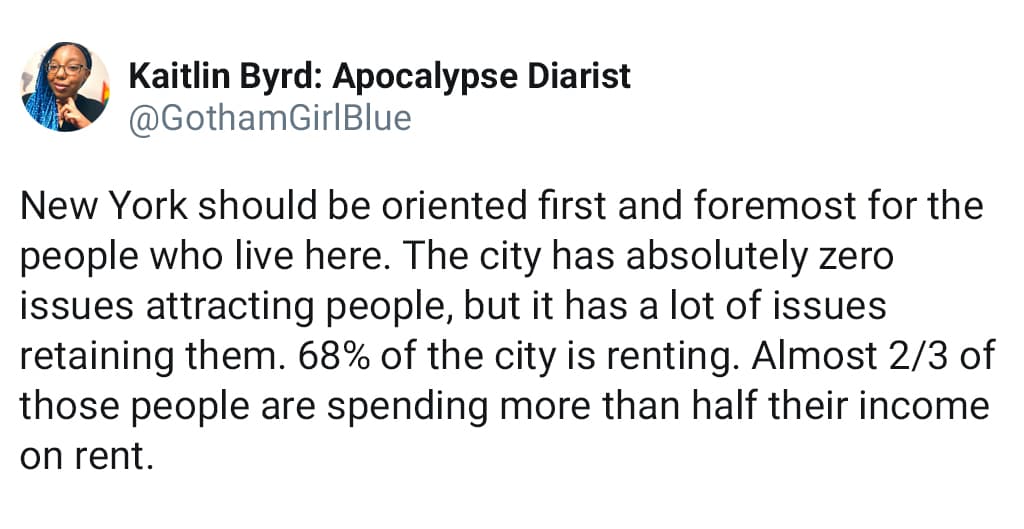
Tied to the issue of gentrification is the fact that the city is made of “haves” and “have nots.”
As I often observed in San Francisco, if you’re one of the “haves,” you’ve got to work hard to keep it up, and if you’re one of the “have nots,” you’ve got to work even harder just to keep your head above water!
This can translate to longer working hours and more stress, which then leads to less time and desire to socialize or nurture friendships. In other words, work burnout can mean increased loneliness.
Moreover, you may be spending your time in close proximity with others but you’re not really connecting because you’re just hustling to get things done.
You’re commuting on the subway, going to the dry cleaners, walking to the bank, the gym, the grocery store…It’s just the daily rat race of life that can sometimes get in the way of us keeping up with friendships or establishing new relationships.
David D., a forty-year-old transportation employee who has lived in both Brooklyn and San Francisco, put it to me this way:
“People take vacations to the city and they think, ‘Wow, it would be so cool to live here!’ But they are seeing the city through vacation goggles.
They’re picturing themselves just hanging out at a cafe or at the park, living the good life. That’s just not the reality of living here…
I have plenty of co-workers who I’d love to start friendships with outside of work, go to the park or whatever. But I’m pulling crazy shifts just to get by…Who has time for that?”
New York psychologist Dr. Yoon does a lot of work with patients who are dealing with chronic stress from city living. According to her:
“When you’re in survival mode, extra friendships might seem like the cherry on top. The thought of trying to meet someone or go on a date is too much because you’ve barely gotten through to the end of the week.”
As she explained, people don’t realize how primal the need for human connectedness actually is, and that good relationships can actually mitigate that feeling of being in “survival mode” and give us more energy to get through the day.
As she put it “…it’s just a matter of getting over that initial hump and shifting priorities.”
- Technology, FOMO, And Looking Out The Window At Everything We’re “Missing”
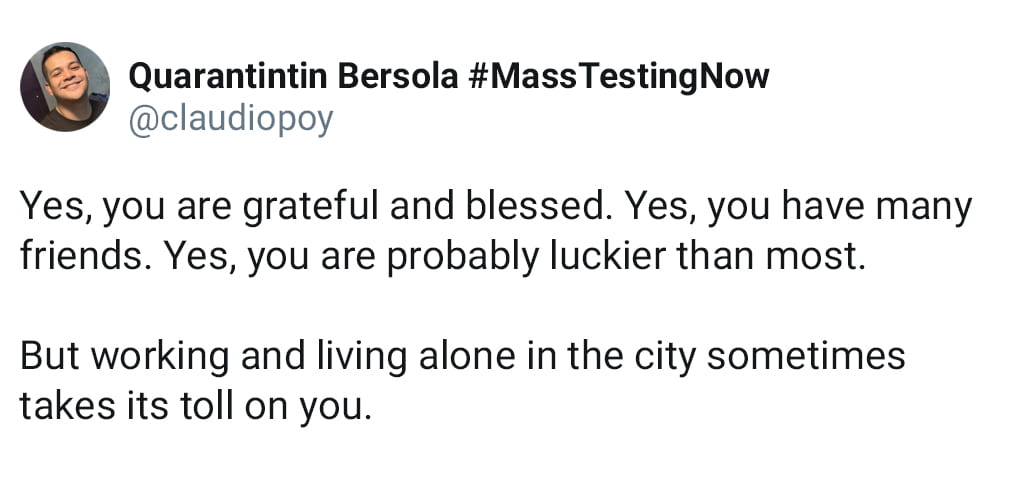
Let’s talk about how awesome technology is when you live in a big city; you can have pretty much anything and everything delivered to your apartment.
As I write this, I pulled up my DoorDash app and entered my old Nob Hill address. If I was there right now, I would have the option to have food delivered to my door from over 1,300 nearby restaurants!
Decisions, decisions, decisions.
Unfortunately, this was one of the many “loneliness traps” that I came across when moving to, and living in, a new city alone.
Aided by technology, I could spend entire weekends holed up in my apartment, even when the weather was great and there was plenty to do right outside my window.
Why go to the park and mingle with my neighbors when I could slide lazily down a Facebook or YouTube rabbit hole in my pajamas while enjoying cheap Chinese delivery?
Of course, this would lead to inevitable guilt and major big city FOMO — Fear of Missing Out.
There were always so many events and options for entertainment that jumping onto social media would constantly remind me that I wasn’t living the glamorous lifestyle that all my fellow urbanites were (seemingly) living.
And with so much going on around us in the city, FOMO can happen when we aren’t even online or on social media.
As Megan, an Austin professional told me:
“Being in a large city means that when I look out the window, I immediately see individuals hanging out with lovers, friends, or family members, and having a great time while I’m alone in my apartment.
As someone who struggles with ‘grass is always greener on the other side’ syndrome, I see these happy individuals and think, ‘Oh, I wish I had nearby friends to go to a movie with,’ which of course just makes me feel even more lonely!”
For Megan, working from home exacerbates this feeling even further:
“While this provides a lot of benefits, remote work is often very isolating. It’s not uncommon for me to go an entire day without leaving my apartment or speaking to another human soul, and it’s incredibly depressing and hard emotionally.”
And of course, loneliness was common during the COVID-19 pandemic when the landscape of city life changed drastically due to mandated social distancing and shelter-in-place orders.
Many people who didn’t previously work from home began doing so at that time, but just about everyone’s social lives were brought to a sudden halt and FOMO took on a whole new meaning.
- Anonymity And Negative Politeness: Urban Cultural Norms That Are Double-Edged Swords

When I first moved to the city alone, my father — an octogenarian and long-time city resident — told me quite memorably that I could prance down the street in a bright pink tutu if I so wished.
The wonderful thing about the city, as he put it, is that you’re free to let your freak flag fly and nobody will look twice!
The idea of such total freedom is a rather liberating thought, but I also soon realized that the flip side of this is a form of invisibility.
As city-dwellers, we get in the habit of ignoring everyone as a sort of survival mechanism, which small-town folks might interpret as rude.
Panhandlers, people peeing on the sidewalk, naked bike riders, street performers, folks dancing down the middle of the street in bright pink tutus…Nothing turns our heads.
But in ignoring all the craziness, we are also ignoring each other.
On top of this, people often display what’s known as “negative politeness,” or in other words, a hesitation to intervene in another person’s space without a strong cause.
This is what causes us to keep to ourselves on the subway. As urbanite Sam explained it:
“Often, the only personal space you have is space you have that you make for yourself mentally…You’re living with a ton of roommates, surrounded by people on public transit, and packed with people in the office. As a result, you’re trying to respect other peoples’ headspaces as well.”
So negative politeness isn’t such a bad thing, although it can make feelings of social isolation worse for those of us who really want to reach out to others.
But as Sam explained, the sheer number of people to “choose from” in the city can also lead to downright rudeness:
“You never feel like you have to accept people for their faults because there are so many people all around…Since when are we entitled to have so many deal breakers?
Now because of this latitude of choice, people feel that they have the right to impose all these unreachable personal standards. In a small town, you couldn’t hide your bad behavior behind anonymity. You’d run into the person again or they’d be one of your kin.”
For this reason, she said, it was challenging for her to meet new friends in the city.
- City Architecture And Structure Can Exacerbate Feelings Of Isolation
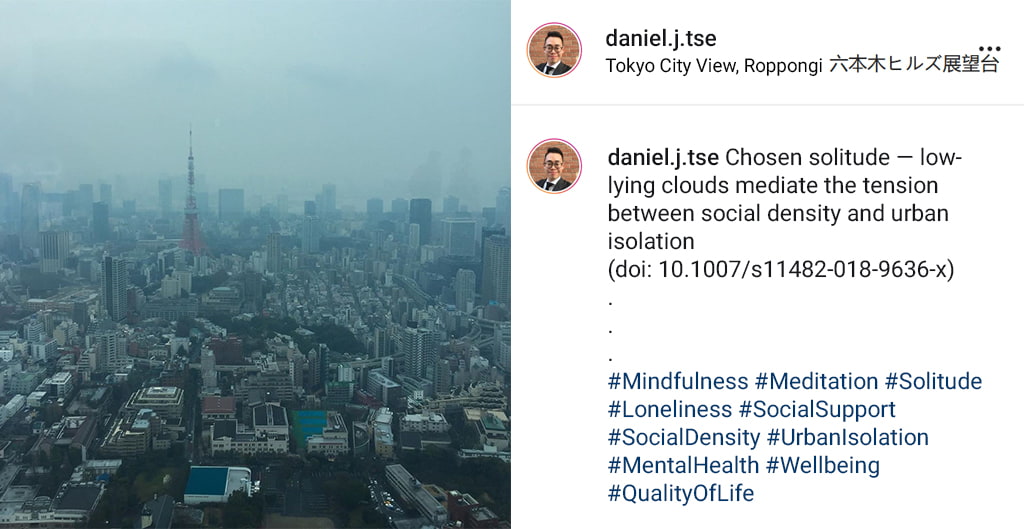
As I expanded on in this article about urban loneliness, it’s not just our collective behavior within cities that can lead to loneliness, but also the very structure of cities themselves.
This includes too few green spaces, sterile and disorienting high rise buildings, public housing projects that are isolated from the rest of the city, and a lack of communal areas on the ground level.
Luckily, city planners and architects are starting to recognize that a healthy city is one where people feel a sense of true community with their neighbors.
As a result, they are taking steps to encourage better physical connectedness through urban design, including the addition of community gardens, parks and green spaces, better integration of public housing, and more.
In addition, city living often requires a certain income level to remain viable, often sapping free time and willpower after a hard day at the office. FOMO can then paralyze us with too many choices as we look longingly at social media or out our window at all we’re missing.
And to top things off, city architecture, structures, and the ways cities are laid out often inherently stifle social interaction and further create distancing and loneliness.
Closing Thoughts
In the end, my big city living didn’t translate to a super cool “Carrie Bradshaw experience.”
I didn’t meet my prince charming nor did I become a rags-to-riches career success story. I remain as unfashionable as I ever was and I don’t have any great connections at the club or elsewhere — I couldn’t get you past the bouncer.
However, moving to the city ended up being one of the best decisions I ever made.
It provided me the unique opportunity to work on myself, develop a feeling of inner peace, and learn to live alone without feeling lonely.
While it was tough at first, I ended up making friends and by consistently stepping outside of my comfort zone, I learned to be much more comfortable in my own skin.
I ended up staying in San Francisco for nine years and I often look back on that time with fondness.
Editor’s Note: This article is part of The Roots Of Loneliness Project, the first-of-its-kind resource that comprehensively explores the phenomenon of loneliness and over 100 types we might experience during our lives.
Find Help Now
If you’re struggling with loneliness living alone in a new city, we’ve put together resources to meet you wherever you are — whether you want someone to talk to right now, or are looking for longer-term ways to help ease your loneliness.
- Suicide Prevention Lifeline: 1-800-273-TALK (8255); Deaf or hard of hearing dial 711 before the number or connect via online chat
- Resources & Emotional Support For Loneliness
- Volunteer & Pet Adoption Opportunities





